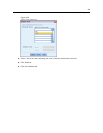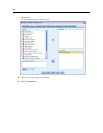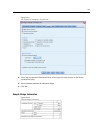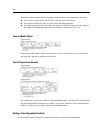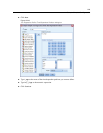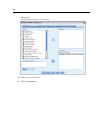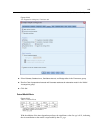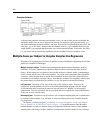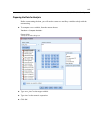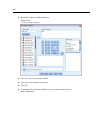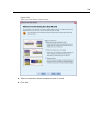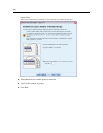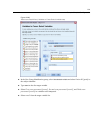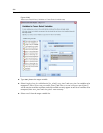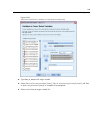
226
Chapter 22
Parameter Estimates
Figure 22-20
Parameter estimates
Looking at the parameter estimates and standard errors, you can see that you have replicated the
alternative model from the test of proportional hazards. By explicitly specifying the model, you
can request additional parameter statistics and plots. Here we have requested the design effect; the
value for t_age of less than 1 indicates that the standard error for t_age is smaller than what you
would obtain if you assumed that the dataset was a simple random sample. In this case, the effect
of t_age would still be statistically significant, but the confidence intervals would be wider.
Multiple Cases per Subject in Complex Samples Cox Regression
Researchers investigating survival times for patients exiting a rehabilitation program post-ischemic
stroke face a number of challenges.
Multiple cases per subject. Variables representing patient medical history should be useful as
predictors. Over time, patients may experience major medical events that alter their medical
history. In this dataset, the occurrence of myocardial infarction, ischemic stroke, or hemorrhagic
stroke is noted and the time of the event recorded. You could create computable time-dependent
covariates within the procedure to include this information in the model, but it should be more
convenient to use multiple cases per subject. Note that the variables w ere originally coded so that
the patient history is recorded across variables, so you will need to restructure the dataset.
Left-truncation. The onset of risk starts at the time of the ischemic stroke. However, the
sample only includes patients who have survived the rehabilitation program, thus the sample
is left-truncated in the sense that the observed survival times are “inflated” by the length of
rehabilitation. You can account for this by specifying the time at which they exited rehabilitation
as the time of entry into the study.
No sampling plan. The dataset was not collected via a complex sampling plan and is considered to
be a simple random sample. You will need to create an analysis plan to use Complex Samples
Cox Regression.
The dataset is collected in stroke_survival.sav. For more information, see the topic Sample
FilesinAppendixAinIBM SPSS Complex Samples 19. Use the Restructure Data Wizard to
prepare the data for analysis, then the Analysis Preparation Wizard to create a simple random
sampling plan, and finally Complex Samples Cox Regression to build a model for survival times.




